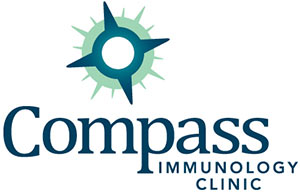Understanding the Difference Between an Immunologist, a GP Allergist, a Nurse Practitioner, and a Dietitian in Allergy
At Compass Immunology Clinic, patients may see a range of qualified professionals, each with different scopes of practice and areas of expertise. Understanding these roles can help you make informed decisions about your care:
Clinical Immunologist and Allergist (Specialist)
A Clinical Immunologist is a medical specialist who has completed advanced postgraduate training (typically 10+ years) in internal medicine or paediatrics, followed by sub-specialist training in immunology and allergy. Immunologists manage complex or chronic allergic and immune system conditions, including:
- Anaphylaxis, Drug Allergies, Insect Venom Allergies and food allergies
- Autoimmune diseases
- Immunodeficiencies
- Chronic urticaria (hives), eczema, asthma, and more
They are qualified to diagnose, manage, and treat patients across all levels of disease severity and are often involved in hospital-based care, research, and immunotherapy programs.
GP Allergist (General Practitioner with Special Interest in Allergy)
All our GP Allergists have attained formal postgraduate qualifications in allergy medicine. They can manage allergic conditions, such as:
- Seasonal or environmental allergies (Hayfever/Allergic Rhinitis)
- Food allergies
- Skin-related allergy symptoms (Eczema, Chronic Urticaria)
They do not typically manage immunodeficiencies, autoimmune disease or complex multisystem disorders, and they may refer to an Immunologist for more advanced or escalated care needs.
Nurse Practitioner (Special Interest in Allergy)
A Nurse Practitioner (NP) is an advanced practice registered nurse with postgraduate qualifications who may focus on allergy care as part of their clinical role. Under a clearly defined scope of practice and in close collaboration with supervising doctors, NPs can:
- Conduct clinical assessments
- Order and interpret allergy tests
- Provide patient education
- Initiate and monitor some treatments under protocol
While they do not replace specialist care, they play a vital role in coordinating therapy, especially in desensitisation programs or follow-up care within structured allergy pathways.
Allergy Dietitian
An Allergy Dietitian is an Accredited Practising Dietitian (APD) with expertise in the nutritional management of allergic conditions. They work closely with the clinical team to support:
- Elimination and reintroduction diets for suspected food allergies or intolerances
- Nutritional assessments for patients with dietary restrictions (e.g. dairy, egg, nut, wheat)
- Growth and development monitoring in children with multiple food allergies
- Education and support for label reading, meal planning, and avoidance strategies
- Practical tips on how to progress through the egg and milk ladders to support tolerance development and dietary expansion.
Allergy Dietitians are an essential part of multidisciplinary allergy care, ensuring nutritional adequacy and safety for patients undergoing diagnostic or therapeutic food challenges or dietary elimination.”
